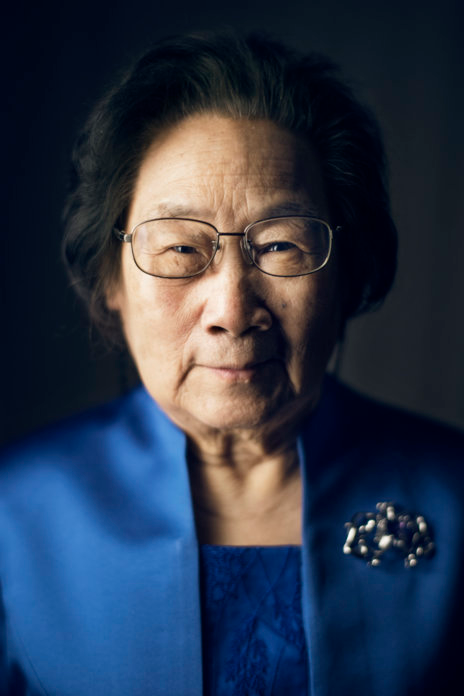 Copyright Nobel Media AB. Photo: A. Mahmoud
Copyright Nobel Media AB. Photo: A. Mahmoud
In 2015, China welcomed its first Nobel Prize in Medicine. The prize went to the Chinese researcher Tu Youyou, for her discovery of Artemisinin – a life-saving, anti-malarial drug. The drug was distributed in 1992 and is now used worldwide.
Tu started as a pharmacological researcher during China’s Cultural Revolution period in the 1960s and 70s. As an academic during this period, she was denigrated for being part of the “Nine Black Categories” of Chinese society. 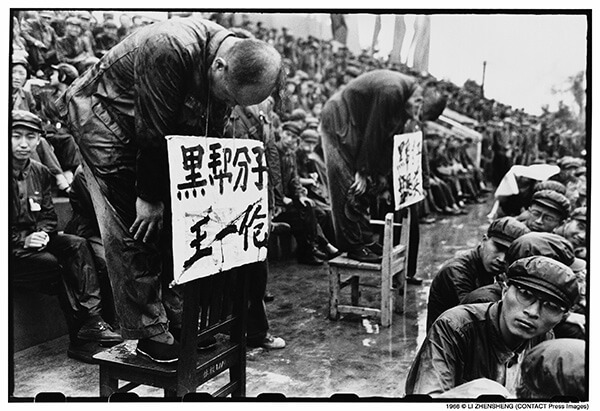 Intellectuals and politicians subjected to
Intellectuals and politicians subjected to
public humiliation, Harbin, Heilongjiang, 1966
Nevertheless, she was tasked in 1969 to lead a top-secret military project, codenamed Project 523. Its mission- develop an anti-malarial drug. Her team poured through traditional Chinese medical texts and discovered that qinghao (sweet wormwood) was frequently mentioned as a treatment for Malaria.
Tu then spent the next decade extracting the active chemical in the herb to synthesize a drug. In 1972, she finally accomplished this feat but was only recognized for her achievement in 2015.
Before then, Tu Youyou was virtually unknown.
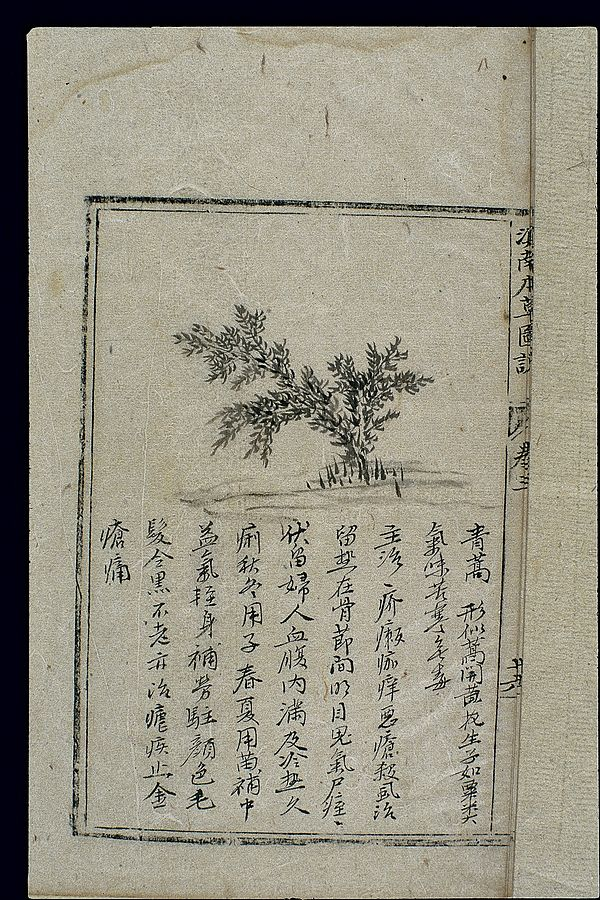 Sweet Wormwood (qinghao, Artemisa annua) depicted in Dian Nan Ben Cao Tu Shuo (The illustrated Yunnan Pharmacopoeia), compiled by the Ming writer Lan Mao in the 14th-15th Century
Sweet Wormwood (qinghao, Artemisa annua) depicted in Dian Nan Ben Cao Tu Shuo (The illustrated Yunnan Pharmacopoeia), compiled by the Ming writer Lan Mao in the 14th-15th Century
It sometimes seems like Tu was destined to make this discovery. It’s also worth noting how similar her name sounds to “to you” – making her a bit of a viral phenomenon.
It also happens to be a very unique Chinese name. Tu’s father got her name from the “诗经” or Shijing, a book of ancient classical Chinese poems dating back to the 11th century B.C. One of the poems describes a scene with deer bleating in the background while the poet entertains his guests.
Tu Youyou’s name comes from the poem’s first verse, which goes “呦呦鹿鸣,食野之苹” translated as “The deer bleat: ‘yōu yōu’ while eating wild ‘hāo’” or qinghao, which is the herb used for Artemisinin.
From the very beginning, Tu’s name had hinted at her lifelong association with qinghao, her magnum opus, that would go on to win her a Nobel Prize.
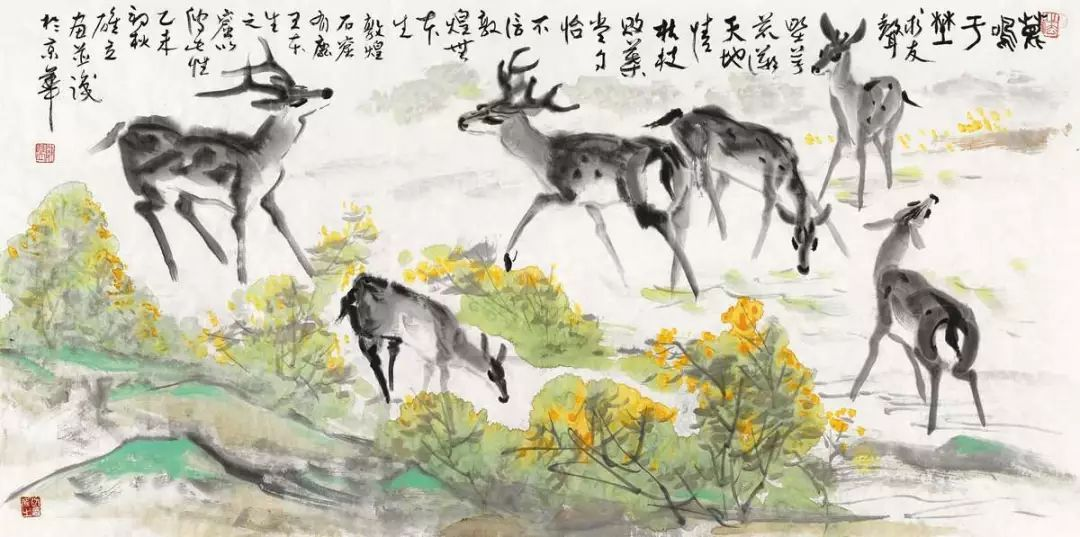 A scenery similar to the one depicted by the Shijing
A scenery similar to the one depicted by the Shijing
Tu herself had remarked on this seemingly bizarre sequence of events, saying:
How this links my whole life with qinghao will probably remain an interesting coincidence forever.
Another connection worth noting is that Artemis – the Greek goddess of the hunt, and whose namesake Artemisinin is named after – has one sacred animal: the deer.
 A sculpture of Artemis as Diana (her Roman equivalent), by Leochares. Artemis is depicted along with her sacred animal – the deer
A sculpture of Artemis as Diana (her Roman equivalent), by Leochares. Artemis is depicted along with her sacred animal – the deer
Tu’s story is not just one of patience and lab work, but also one of daring. In her career, she challenged the status quo of academics in China. Her career began at a time when scientists and intellectuals were mudered, driven to suicide, or if they were lucky, simply ‘purged’ from society. After successful animal trials, she volunteered to be the first test subject before beginning human trials, saying:
Tu Youyou’s path to the Nobel Prize can be summed up as “unlikely.” She doesn’t have a postgraduate education (there was no Chinese equivalent to graduate school at the time). She never trained abroad. She wasn’t even a member of China’s national Chinese Academy of Sciences (CAS). In fact, in China, Tu has been jokingly given the moniker “Three-Without Scientist” .
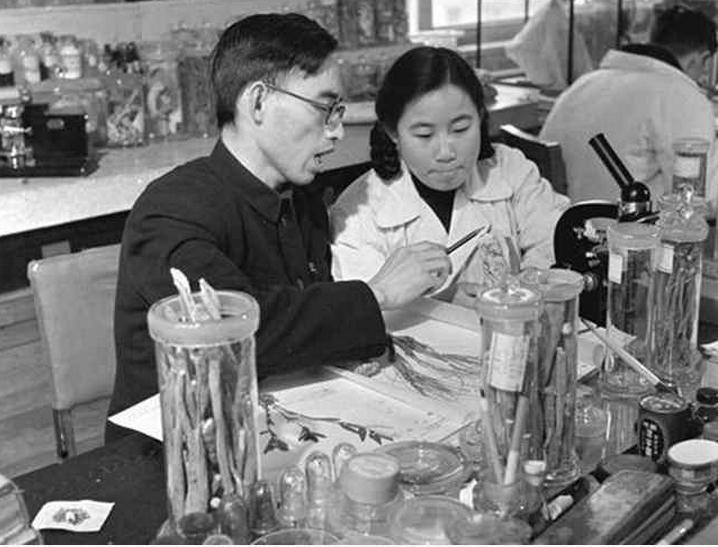 Tu Youyou (right) and her tutor in the 1950s
Tu Youyou (right) and her tutor in the 1950s
Tu was a government-appointed military scientist, but not a nationally acknowledged one. As a scientist trained in both modern medicine and pharmacology, she synthesizes medicine from history and tradition.
Whether or not Tu’s journey was aided by Artemis, Tu’s work needs no embellishment. Her work is already legendary, saving the lives of millions across the globe. Her synthesized drug, Artemisinin, has also achieved special status on the world stage. The World Health Organization (WHO) designated it as an “Essential Medicine” of our time.
Tu has said:
It is my dream that Chinese medicine will help us conquer life-threatening diseases worldwide.
Tu may be the first-ever Traditional Chinese Medicine (TCM) Nobel Prize winner, but hopefully not the last.
[zombify_post]

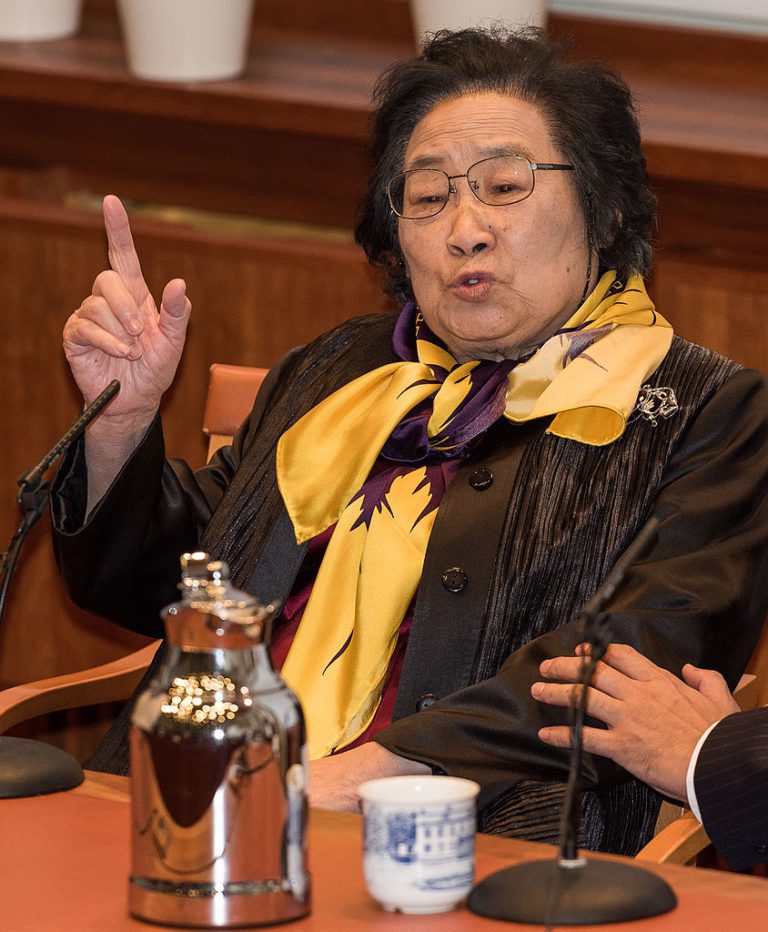
0 Comments